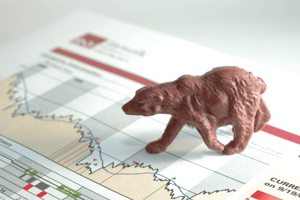Other Articles of Interest
Articles Relevant to Dow Incorporated Employees
Loading...
-
-

8 Tenets of Choosing a Mutual Fund -

Use of Escrow Accounts: Divorce -
Section 303 Stock Redemption Buy-Sell Agreement -
-2.png?width=300&height=200&name=office-builing-main-lobby%20(52)-2.png)
Medicare Open Enrollment Is Here: How Are Costs Changing for 2023? -

2022 High Net Worth Tax Planning -

Policy Roadmap -

Section 179 Deductions -

Learn About the Path to Retirement -

Contemplating Change: 7 Key Factors When Considering a Transition from Your Company -

How Are Workers Impacted by Inflation & Rising Interest Rates? -

Lump-Sum vs Annuity and Rising Interest Rates -

Advice for Retirees Trying to Survive a Bear Market -

5 Most Important Things to do Before Leaving Your Company -

Internal Revenue Code Section 409A (Governing Nonqualified Deferred Compensation Plans)
-

8 Tenets of Choosing a Mutual Fund -

Use of Escrow Accounts: Divorce -
Section 303 Stock Redemption Buy-Sell Agreement -
-2.png?width=300&height=200&name=office-builing-main-lobby%20(52)-2.png)
Medicare Open Enrollment Is Here: How Are Costs Changing for 2023? -

2022 High Net Worth Tax Planning -

Policy Roadmap -

Section 179 Deductions -

Learn About the Path to Retirement -

Contemplating Change: 7 Key Factors When Considering a Transition from Your Company -

How Are Workers Impacted by Inflation & Rising Interest Rates? -

Lump-Sum vs Annuity and Rising Interest Rates -

Advice for Retirees Trying to Survive a Bear Market -

5 Most Important Things to do Before Leaving Your Company -

Internal Revenue Code Section 409A (Governing Nonqualified Deferred Compensation Plans)
For more information you can reach the plan administrator for Dow Incorporated at 1919 torrance blvd Torrance, CA 90501; or by calling them at 900-999-1009.
Company:
Dow Incorporated*
Plan Administrator:
1919 torrance blvd
Torrance, CA
90501
900-999-1009
*Please see disclaimer for more information
Featured Articles
Articles Relevant to Dow Incorporated Employees
Loading...
-
-
 8 Tenets of Choosing a Mutual Fund
8 Tenets of Choosing a Mutual Fund
-
 Use of Escrow Accounts: Divorce
Use of Escrow Accounts: Divorce
-
Section 303 Stock Redemption Buy-Sell Agreement
-
-2.png) Medicare Open Enrollment Is Here: How Are Costs Changing for 2023?
Medicare Open Enrollment Is Here: How Are Costs Changing for 2023?
-
 2022 High Net Worth Tax Planning
2022 High Net Worth Tax Planning
-
 Policy Roadmap
Policy Roadmap
-
 Section 179 Deductions
Section 179 Deductions
-
 Learn About the Path to Retirement
Learn About the Path to Retirement
-
 Contemplating Change: 7 Key Factors When Considering a Transition from Your Company
Contemplating Change: 7 Key Factors When Considering a Transition from Your Company
-
 How Are Workers Impacted by Inflation & Rising Interest Rates?
How Are Workers Impacted by Inflation & Rising Interest Rates?
-
 Lump-Sum vs Annuity and Rising Interest Rates
Lump-Sum vs Annuity and Rising Interest Rates
-
 Advice for Retirees Trying to Survive a Bear Market
Advice for Retirees Trying to Survive a Bear Market
-
 5 Most Important Things to do Before Leaving Your Company
5 Most Important Things to do Before Leaving Your Company
-
 Internal Revenue Code Section 409A (Governing Nonqualified Deferred Compensation Plans)
Internal Revenue Code Section 409A (Governing Nonqualified Deferred Compensation Plans)
-
 8 Tenets of Choosing a Mutual Fund
8 Tenets of Choosing a Mutual Fund
-
 Use of Escrow Accounts: Divorce
Use of Escrow Accounts: Divorce
-
Section 303 Stock Redemption Buy-Sell Agreement
-
-2.png) Medicare Open Enrollment Is Here: How Are Costs Changing for 2023?
Medicare Open Enrollment Is Here: How Are Costs Changing for 2023?
-
 2022 High Net Worth Tax Planning
2022 High Net Worth Tax Planning
-
 Policy Roadmap
Policy Roadmap
-
 Section 179 Deductions
Section 179 Deductions
-
 Learn About the Path to Retirement
Learn About the Path to Retirement
-
 Contemplating Change: 7 Key Factors When Considering a Transition from Your Company
Contemplating Change: 7 Key Factors When Considering a Transition from Your Company
-
 How Are Workers Impacted by Inflation & Rising Interest Rates?
How Are Workers Impacted by Inflation & Rising Interest Rates?
-
 Lump-Sum vs Annuity and Rising Interest Rates
Lump-Sum vs Annuity and Rising Interest Rates
-
 Advice for Retirees Trying to Survive a Bear Market
Advice for Retirees Trying to Survive a Bear Market
-
 5 Most Important Things to do Before Leaving Your Company
5 Most Important Things to do Before Leaving Your Company
-
 Internal Revenue Code Section 409A (Governing Nonqualified Deferred Compensation Plans)
Internal Revenue Code Section 409A (Governing Nonqualified Deferred Compensation Plans)
/General/General%207.png?width=1280&height=853&name=General%207.png)






